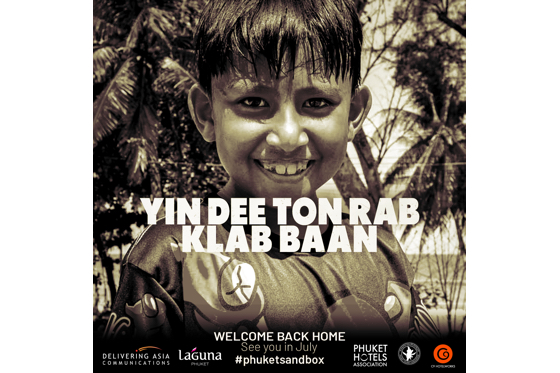One of the most notable phenomena in our collective pre-COVID travel world was the moonshot-velocity of Instagram tourism. Forget TripAdvisor, or even those pesky YouTube influences, the earth-shattering shift to visual selfies changed our industry. Sure, like so many other trends, a single innovation is what pulled the trigger of the big bang and, in this case, that was the smartphone.
Contributed by Bill Barnett, managing director, C9 Hotelworks, Bangkok
For hoteliers, the obsession with capturing and creating Instagram moments has manifested itself in every facet of hospitality. Just look at those crazy design meetings with hotel owners tightly gripping their soy lattes, overly caffeinated and shouting about the lack of the five hero IG elements.
Nowhere else can the IG-mania be more prolific than resorts. From installing swings on the limbs of every available tree, or my own most despised feature – the floating breakfast. Who on earth wants to sit in the pool, trying to butter your croissant? One of the biggest outcomes of this fad has been that after the series of selfies is done, most guests head to the buffet to find their favorite foods which perhaps are not so photographable.
Recently, as we passed the 15th month of the closure of international tourism to my home island Asia, tourism eyes around the world were focused on a resort island in Thailand for the reopening of international, vaccinated travel to the Phuket Sandbox. A key emerging storyline from the island’s frenzied runaway to July 1 that was most notable to me was the remarkable cross-sector partnerships that become a true catalyst of change. We learned to work together.
Phuket’s private sector has massively rallied in the final days leading up to the Sandbox in support of its greatest asset, its people. The island’s rich cultural tapestry is the theme of the newly launched Welcome Back Home hospitality community collaboration.
One key working part of Thailand’s Sandbox scheme, has been to achieve the vaccination a baseline of over 70% of Phuket residents. With local government resources already stretched in fighting the COVID-19 crisis, hotels have thrown open their doors and embraced their neighborhoods in hosting vaccination centers to help achieve the numbers.

The Sandbox has brought together various tourism organizations in a way our industry has never witnessed before in an island that has experienced past events like SARS, the Asian tsunami and the global financial crisis.
The Sandbox has broken down barriers within our industry, and the hope displayed in the determination and spirit is teaching us a true-life lesson. Welcome Back Home is our tribute to acknowledging people first and supporting our local neighbors, and not just relying on Instagram-ready photo libraries.
On an island that showcases some of Asia’s best beaches and world-renowned resorts, we wanted the campaign to represent the true face of our tourism industry, its people. So, we took to the streets, had conversations, and engaged with our community which has remained resilient in the face of adversity, to actively be the face of this amazing change that is about to take place.
The campaign was shot by a Thai photographer and videographer, Thunwa Siripotisorut, over two days of traveling the length and breadth of the island visiting local villages, markets and fishing communities. See the video here.
What has become clear is the expression of pride at how the efforts of local people had brought us to this historic point. There will be bumps in the road but we will get there. We are working together as one, one island. The industry has never shared a vision and intent so passionately. The social media-focused campaign in the lead-up to the beginning of July is highlighted by the voice and images of Phuket people who have endured the pandemic and remain ready to welcome travelers back home in the coming weeks ahead. This is the true voice of Phuket tourism.
Welcome Back Home became a unique undertaking in that it allowed our industry to return to our roots. Without people, there cannot be hospitality and somehow the crisis reconnected us to our communities and made us realize the impact tourism has on our neighbors. The entire undertaking, though, has created questions in my own mind about how we have lost our way in hospitality and hotels, valuing pictures and products beyond people. I’ve found the learnings from my involvement in Welcome Back Home etched in my mind, and the images that come to mind are those of the joys, the humility and the culture of the most important asset in our business – people. Simple as that.
